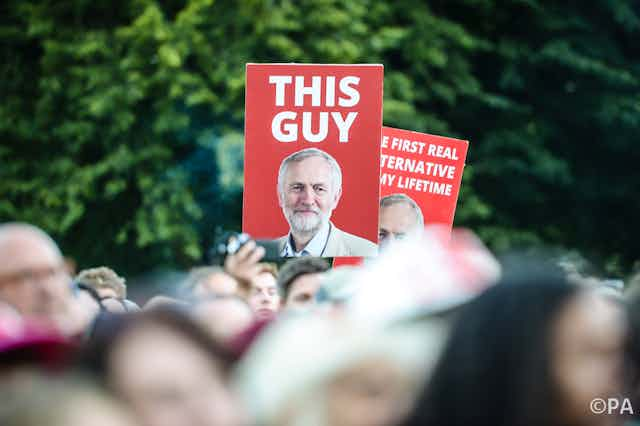The idea of the “left behind” played a prominent role in explaining Britain’s vote to leave the European Union.
These are the people who have not benefited from European integration or globalisation. They are poor, often uneducated and living in deprived communities. The map of voting in the EU referendum showed a remarkable pattern of regions of economic prosperity, such as London and parts of the south-east voting to remain, and areas of deprivation such as Tyneside and the East Midlands voting to leave.
This was not the whole story of the referendum of course, since other forces were at work as well, but deprivation certainly played a part.
Those of us who have studied party members over the years have observed a long-term decline in Britain and elsewhere in party membership and activism. This trend rapidly reversed itself in the case of the Labour Party since the general election of 2015. With more than 600,000 members, the party is now one of the largest mass membership parties in the democratic world. What explains this remarkable change? Is it a one-off or does it herald a resurgence of grassroots party membership and activism?
Clearly, there are factors that are unique to the Labour party when it comes to explaining this development. The loss of the 2015 general election triggered a desire for a change among existing supporters. Equally, the chance event in which some Labour MPs nominated Corbyn for the leadership contest last year (even though they did not vote for him) played a role. A flood of new people signed up as party members and supporters as a result of his surprise election victory, and subsequently they have helped to deliver a decisive win for him in the latest leadership contest.
This kind of insurgency politics is not confined to the Labour party or to Britain, however. In the US, the campaign by Bernie Sanders for the Democratic nomination for the presidency was another example of an insurgency movement. It was astonishing to see a socialist – indeed the only self-declared socialist in the US Congress – come so close to winning the nomination. Something is going on in contemporary party politics. Something bigger than any single party.
Brainy and drained
There is one possible explanation for the rise of the Labour membership that transcends British politics and has implications for grassroots party activity across the democratic world. This is the idea that many educated people have been left behind by changes in the economy. This has generated a sense of relative deprivation which has contributed to making them politically active.
Relative deprivation has been used to explain political participation (and particularly protesting) in the past. The basic idea is that people make comparisons between what they expect out of life and what they actually experience. When forming these expectations they compare themselves with people who are rather similar to themselves. So blue collar workers will make comparisons with other workers in occupations rather like their own, and will not, as a rule, compare themselves with middle class professionals or rich football stars. The latter are seen as being too remote from their circumstances to make a valid comparison.
If this exercise produces a large gap between their expectation and their actual experiences of life, this will lead to frustration and anger. It can trigger political action in the form of protests and demonstrations.

A close look at the British Election Study survey, conducted in May just before the EU referendum, showed that there were a lot of low-paid graduates who joined the Labour party in recent times. The survey has more than 20,000 respondents altogether, and some 679 of them were Labour party members. In April 2016 the average salary in Britain was £27,600. This figure includes both graduates and non-graduates.
Of the Labour party members included in the election survey, 39% were graduates, but 52% of these graduates earned less than £25,000, and 30% of them earned less than £10,000 a year. Compared with the working population in general, let alone other graduates, they are clearly the left behind.
The left behind can, in general, become apathetic and withdraw from politics, but this is less likely to affect graduates because education gives them the skills and motivation to get involved.
That’s perhaps why we are seeing a revolt of the educated left behind in Britain. Many people with graduate qualifications lack traditional graduate jobs and graduate incomes. Not everyone in this group gets involved in politics of course, and those that do might well participate in parties other than Labour. But the fate of this group is a key factor in explaining the rapid increase in Labour membership over the last year.

